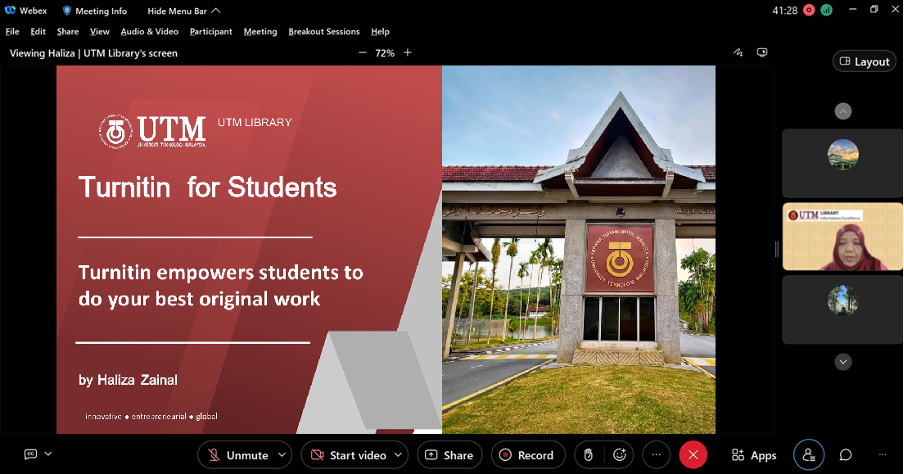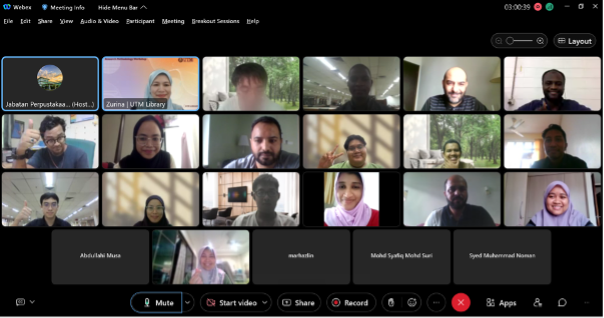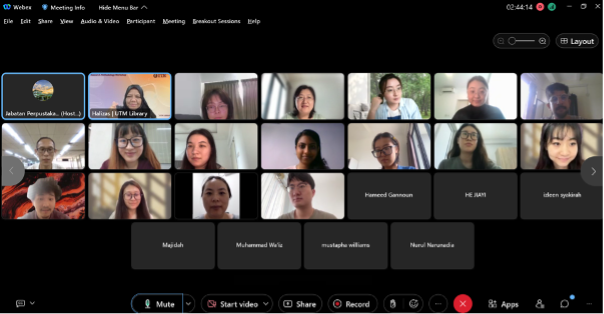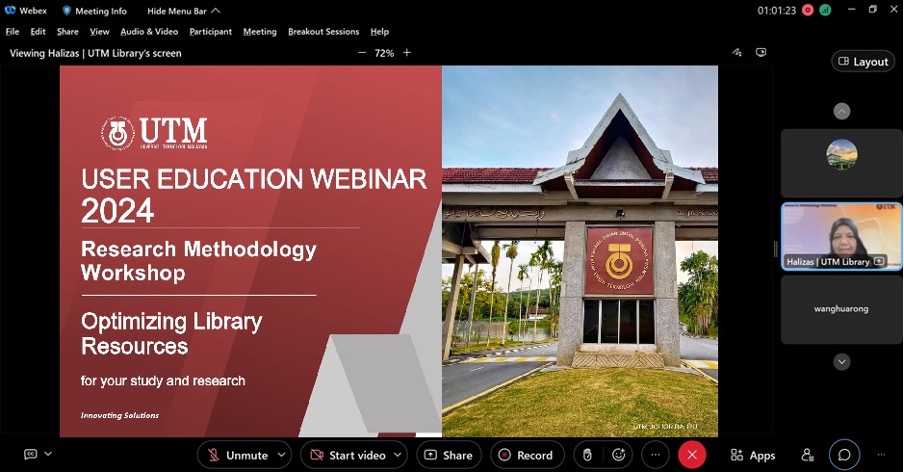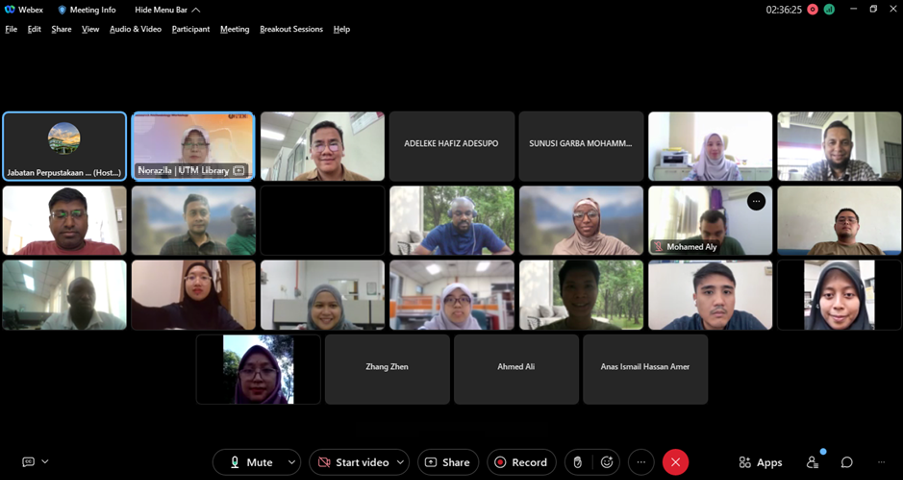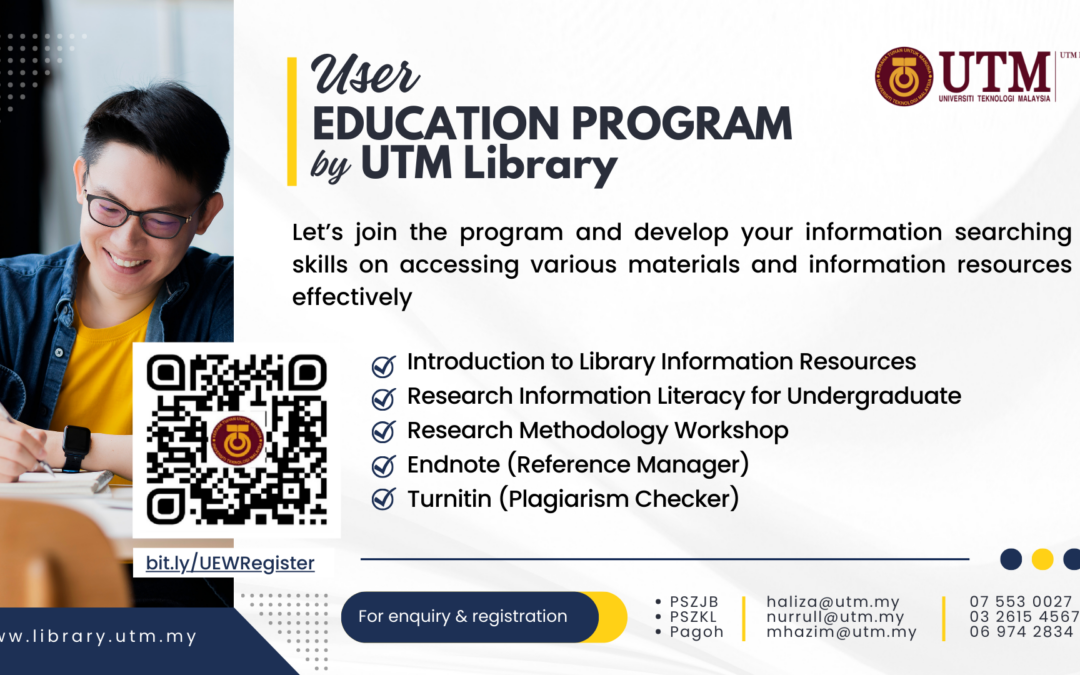In May 2024, a total number of six (6) User Education Programs were conducted with success. It consists of four (4) Research Methodology Workshops, one (1) Turnitin Class for Students, and one (1) Endnote & Turnitin for Students. These programs aim to provide postgraduate students with valuable knowledge and information-searching skills, empowering them to excel in various aspects of education and research.

The User Education Program covers topics:
- Information searching skills which is the ability to effectively and efficiently find relevant and reliable information using various tools and techniques.
- UTM Massive Open Online Course (UTM MOOC) focuses on the UTM Library Skills module to guide students and staff to improve their information literacy for education and research.
- Endnote X9 for students. EndNote is a powerful tool that streamlines the reference management process, saving time and effort for researchers and students. It is widely used in academic and scientific communities to maintain organized and accurate reference lists, ensuring that citations are consistent and conform to specific citation styles required by publishers or educational institutions.
- Turnitin for students. Turnitin is a text matching tool used by students to submit assignments. It checks for similarities between their work and existing sources, providing reports and feedback on originality and writing quality, aiding in academic integrity and skill improvement.
- Where to publish? It refers to the process of identifying and selecting suitable journals, conferences, or other platforms for publishing scholarly research or academic work.
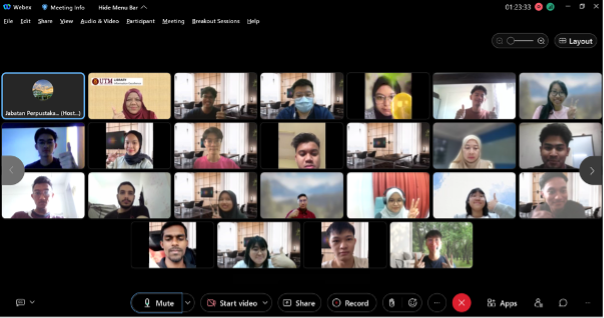
A total number of 361 participants have joined the program. They are undergraduate and postgraduate students from various schools/faculties. By joining the User Education Program, it enables each participant to:
- conduct comprehensive and efficient research
- better equipped in handling academic assignments, research papers, and projects
- access information independently enables ongoing self-education and personal growth
- finding and accessing relevant information enables individuals to resolve issues and make well-informed choices across different domains, including academia, personal matters, and professional settings.
- understanding and adhere to copyright and intellectual property rights promotes ethical conduct in utilizing information and prevents instances of plagiarism.
- be resourceful, adaptable, and open to exploring various sources and formats of information, including books, journals, articles, online databases, and multimedia resources
